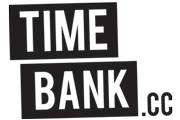
- This event has passed.
time/bank workshop: Where does value come from?
25 August 2011
We exchange, accumulate, and consume cash on a daily basis. The monetary note is an elementary corner-stone of our social existence. Where does the value of this social medium come from? Should the government have full control over the economic protocols that distribute and represent the value of labor and our daily exchanges? Can we envision a currency model that would better compensate for the ways in which we are exchanging, producing, and consuming in the service sectors? What would this alternative economic infrastructure look like?
Join us at Casco in Utrecht for an introductory workshop on e-flux’s time/bank! An alternative currency model that hopes to better facilitate the forms of exchange taking place in the creative sector and beyond.
PROGRAM – PROGRAM – PROGRAM
Introduction to the Grand Domestic Revolution (GDR).
GDR Associate curator, Maiko Tanaka, will introduce Casco’s Grand Domestic Revolution program and articulate key questions emerging from the project relating to value and specific modes of exchange in and from the domestic sphere.
What is Time/Bank?
The Time/Bank Den Haag managers team will give a basic introduction on time/banking and how this alternative currency model has operated in the Hague and at the Stroom Den Haag.
When goldsmiths became graphic designers…
Amsterdam based graphic designer, Chris Lee will present two significant historical examples of alternative currencies. Both emerged from conditions of severe financial crisis and were confrontations with the hegemony of fiat currencies. He will also propose that graphic design has a practical capacity to engage in monetary contestation.
Cases and results of Scrip, LETS and Time Banks for Anti-poverty policies
Miranda van Kuik will share the results of a research evaluating empirical data on scrip, LETS and Time Banks. Effects of these systems on poverty relief, provision of care, social integration and return of long-term unemployed to the labour market were evaluated.
Can alternative currencies be scaled up? Or are we happy with complementary currencies?
Patrice Riemens will discuss the problems that arise when we require alternative currencies systems to answer issues pertaining to ‘seigneurage’ and trust, the credit-savings/rent-interest/ and investment complex, banking and cross-currencies transfers, and the problem of taxation and redistribution.
